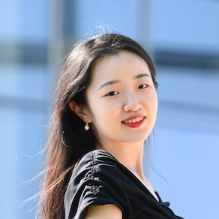Chenyu Gao
PhD by research
Thesis
Thesis Title & Description
Structured music generation for game audio
- Supervisors: Federico Reuben and Tom Collins
As the time players spend varies greatly in some places in computer games, the background music in these places tends to be played constantly leading to listener fatigue. To provide players better experience, it is crucial to avoid this kind of loop, and the most common way is to create more variations to background music. However, variation creation is always hindered by time and financial limitations. In this PhD project, I will design a Structured Music Generation System to enrich sound assets for games. The most advanced artificial intelligence (AI) techniques will be used to generate variations by making changes in melody and rhythm, rendering performance parameters, and arranging musical instruments. The successful completion of this study will lead to novel creative opportunities for game music composers and novel audio experiences for players, as well as potentially reducing time and costs associated with game development.
Research
Research Interests
- Machine learning applied to music, including but not limited to human-centered music generation.
- Discovery of repetitive patterns in music.
Publications
Publications
Gao, C., & Collins, T. (2023). The pendular graph: Visualising hierarchical repetitive structure in point-set representations of the POP909 music dataset. In Proceedings of the Human-Computer Interaction International Conference, Copenhagen, Denmark.
Gao, C., Zhu, Q., Wang, P., Li, H., Liu, Y., Van den Hengel, A., & Wu, Q. (2021). Structured multimodal attentions for textvqa. IEEE Transactions on Pattern Analysis and Machine Intelligence, 44(12), 9603-9614.
Gao, C., Zhu, Q., Wang, P., & Wu, Q. (2021). Chop Chop BERT: Visual Question Answering by Chopping VisualBERT's Heads. In Proceedings of the 30th International Joint Conference on Artificial Intelligence.
Zhu, Q., Gao, C., Wang, P., & Wu, Q. (2021, May). Simple is not easy: A simple strong baseline for textvqa and textcaps. In Proceedings of the AAAI Conference on Artificial Intelligence (Vol. 35, No. 4, pp. 3608-3615).
Wang, P., Gao, C., Wang, Y., Li, H., & Gao, Y. (2020). MobileCount: An efficient encoder-decoder framework for real-time crowd counting. Neurocomputing, 407, 292-299.

